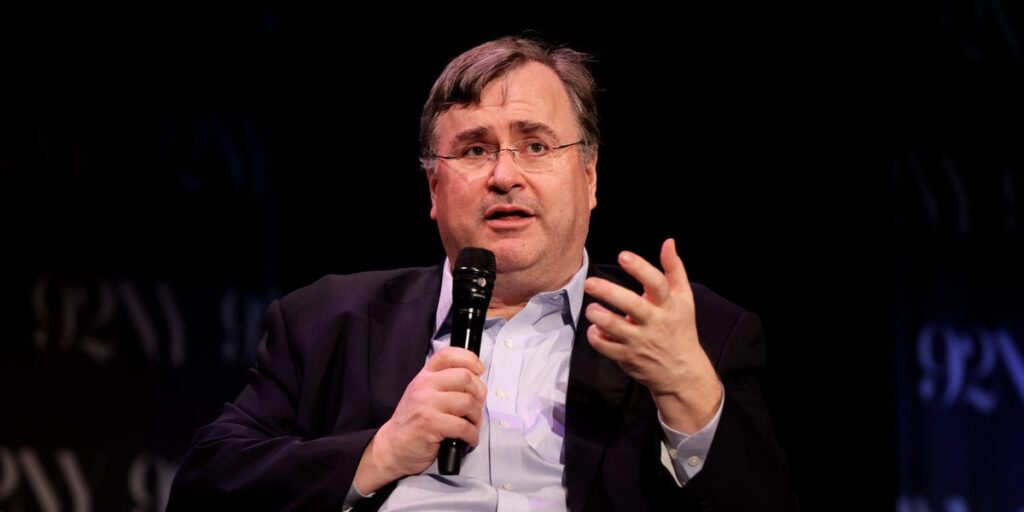Reid Hoffman, the LinkedIn cofounder and veteran Silicon Valley investor, has created an AI-powered version of himself — and the results are both eye-opening and a little surreal.
In a Monday interview on the “American Optimist” podcast, Hoffman revealed he trained a “deepfake twin” using a custom GPT model, ElevenLabs for voice synthesis, and video-generation tools to explore whether a technology widely associated with disinformation could also be repurposed for good.
“You have this technology that most people call deepfake, and deepfake just sounds like it’s bad,” Hoffman said. “So I was like, let’s start experimenting with it and see how it can work in better ways.”
The AI clone, which he calls “Reid AI,” is designed to act and sound like him — and, in some cases, speak languages Hoffman doesn’t.
After delivering a speech at the University of Perugia in Italy in May 2024, he used his AI twin to deliver the same message in Hindi, Chinese, Japanese, and Italian.
“I’ve never heard my voice speaking Hindi; I’ve never heard my voice speaking Japanese,” he said. “And it was like, wow, it is clearly my voice.”
Hoffman described the projects as “raw experimentation” with surprising upsides, including increasing accessibility and expanding the reach of ideas.
But he also acknowledged serious limitations.
“I haven’t put it out in the wild,” he said, citing the risk of hackers making the AI say “crazy stuff.”
Deepfakes have already been misused in several ways. These include impersonating former President Joe Biden in AI-generated robocalls urging voters not to participate ahead of the 2024 New Hampshire primary and spreading fake surrender messages from Ukrainian President Volodymyr Zelenskyy.
For now, Hoffman’s clone remains private and serves as a tool for translation, experimentation, and testing new ways to communicate across cultures and platforms.
Hoffman built the projects with transparency in mind: the AI’s synthetic nature is disclosed, and its use remains tightly controlled.
His takeaway is that not all deepfakes are inherently harmful. With ethical design and intentional use, the same technology driving disinformation could help people connect across languages and cultures.
“What we’re trying to do, as technooptimists say, is how do we shape it so it’s applied well,” he said.
Hoffman isn’t the only one to have experimented with AI clones.
“The Diary of a CEO” host Steven Bartlett launched a new podcast in May, “100 CEOs with Steven Bartlett,” using an AI-generated version of himself to narrate stories about business leaders.
Read the full article here
















